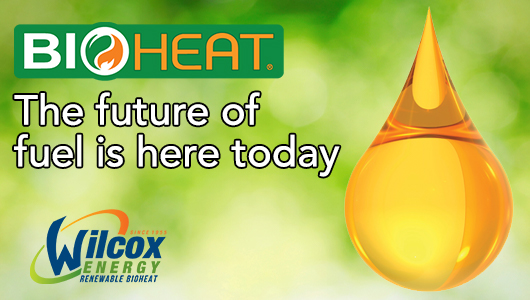Contents

The evidence is very clear regarding biofuels. Many trusted and reputable sources tell us that biofuel is indeed a renewable form of energy.
In fact, many industry insiders agree that it’s the most cost-effective way to reduce our need for pure fossil fuels. Even better, utilizing this fuel is the quickest way to lower the U.S.’s carbon footprint while achieving carbon neutrality by 2050.
And the best part?
It won’t cost the American people a small fortune to switch from traditional oil heat to biofuel, unlike other types of renewable energy usage, including solar and wind. Most homes are already equipped to handle it.
Today, we’ll delve deeply into the following topics:
- A Brief Primer On Renewable Energy
- Two Types Of Biofuels: Ethanol & Biodiesel
- The Global & Personal Benefits Of Switching To Biofuel
Keep reading to discover the truth about biofuel that the media doesn’t want you to know about.
Achieving A Better Understanding of Renewable Energy
What is renewable energy? According to Eia.gov, the main sources of renewable energy include:
- Wind
- Water
- Geothermal
- Solar
- Biomass including municipal and wood waste, biofuel, and biogas
Overall, the US only consumes 12% of renewable energy as of 2020. But the U.S. Government and the top corporations in the U.S. and around the globe are committed to change. Interestingly, all of our fuel oil customers are already consuming biofuel automatically (and at no added cost). This is because we ALREADY deliver our Bioheat® heating oil which is made from biodiesel, a liquid renewable fuel.
A strict definition of renewable energy is as follows: it’s a way to generate energy using sources that naturally renew or replenish over time. It requires creating energy from inexhaustible sources.
Renewable Energy’s Role in the U.S.

Wood was the biggest energy provider in the U.S. in the 1800s. It was used for lighting, cooking, and heating homes. But fossil fuels took over in the late 1800s and they’ve remained the main source ever since.
Recently, the U.S. has begun working toward reducing carbon emissions at a rapid pace. So, the country is now more committed to developing newer renewable sources including solar energy, biofuels, wind energy, and geothermal energy.
In 2020, the U.S. had reached its highest record to date of producing and consuming renewable energy sources and the trend will continue. It is the world’s most urgent mission to achieve carbon-neutrality by 2050.
Two Types of Biofuels: Ethanol & Biodiesel
Two main types of biofuels are known as biodiesel and ethanol. According to the Bioenergy Technologies Office (BETO), the next-generation forms of these biofuels are derived from non-food substances like algae-based ingredients and cellulosic materials.
Petroleum substitutes including “drop-in” fuels are being advanced to replace the need for oil. These fuels are hydrocarbon-based biofuels that we can use in small engines, vehicles, pumps, and pipelines.
The Truth About Ethanol

Ethanol, also known as CH3CH20H, is a powerful source of renewable energy derived from biomass, which is ultimately a collection of varying plant materials. It’s mainly a type of alcohol that is blended with gasoline.
Why?
Two reasons. First, it cuts down on t is improving this technology every day. Now, scientists are developing ways and technologies that make it possible to use hemicellulose and cellulose. These nonedible fibrous materials make plant matter bulk, which is available in plentiful supply and they’re certainly renewable sources.
Fermentation is the most common way to convert biomass into ethanol. Microorganisms like yeast and bacteria produce ethanol by metabolizing plant sugars.
The Various Uses of Ethanol
Ethanol is predominantly used to fuel automobiles. It’s mostly mixed with gasoline to increase the octane rating. Why? This mixture creates a cleaner, safer, and more environmentally friendly fuel that’s better for your vehicle, the environment, and more.
It’s also added in alcoholic beverages, it’s used as an industrial chemical, and it’s even employed as a solvent too. This pristine renewable fuel is ideal for moving toward a cleaner and greener world.
What Is Biodiesel?

Biodiesel is fuel that’s produced from renewable energy sources and created in liquid form. They make it using animal fats and vegetable oils to provide a clean-burning alternative to diesel fuels made from petroleum.
Even better, biodiesel is biodegradable and non-toxic. Manufacturers produce it using recycled cooking grease, animal fat, or vegetable oil substances. Similar to diesel fuel derived from petroleum, this fuel source is readily available to use in compression ignition engines, better known as diesel fuel engines.
As it pertains to heating homes, biodiesel can be blended with ULSHO (ultra-low sulfur heating oil). Bioheat® heating oil is a product that we utilize for all our clients. This solution is made with this blend of biodiesel and ULSHO.
Blend ratios for Biodiesel and ULSHO

There are numerous concentrations of biodiesel & ULSHO, which means we have a wide variety of blends. Some of the most common blends are mixed with soy-based fuels to lower carbon emissions and provide a cleaner energy source. The popular blends include:
- B5 – this is a common blend that contains as much as 5% biodiesel.
- B20 – this blend is what we currently deliver to our customers. It contains a mixture of 20% biodiesel fuel and 80% ultra-low sulfur heating oil.
- B50 – similar to B20 except it’s a 50/50 mix of soy and ULSHO.
- B100 – this is the ultimate goal in home heating. At this level, our liquid renewable fuel solution is derived entirely from renewable energy sources.
The Facts & Benefits of Bioheat® Fuel Oil
Bioheat® heating oil at a b20 mixture is the blend we deliver for heating homes today. In particular, this green fuel is the prototype for the direction the heating industry intends to move into to eliminate carbon emissions altogether.
Right now, this 80/20 mix of Bioheat® meets all of the prescribed levels of quality required to meet ASTM standards. Even better, it provides a wide range of benefits to improve our overall carbon output and much more. The benefits include:
- Quality ingredients – Bioheat® meets the strictest quality standards in the industry. It’s safe, efficient, and better for the environment on the whole.
- Better for the economy – 62,000 jobs exist in the United States because of Bioheat® and the biodiesel industry. This will expand over time as more businesses and homeowners continue to adopt this clean energy source.
- It’s ideal for the environment – The whole point of developing a renewable fuel source is to cut down, and eventually eliminate carbon emissions. This fuel achieves this goal on a smaller scale right now, with the overall goal of creating a plant-based renewable fuel that doesn’t produce any greenhouse gas emissions.
- Better for your wallet – Not only is this fuel affordable, but it also works with your current oil heating system. Switching to solar power, as an example, might cost $25,000 or more after you’ve paid a pretty penny to have your old system removed and your new heating system installed. And, converting your home to an all-electric heating system does not provide the same level of BTU output for comfort during the coldest days of the winter!
Switching to Biofuels to Heat Your Home: Global & Personal Benefits
You’re hopefully beginning to see that biofuel is much cleaner and better for the global environment on the whole. Some of the main reasons to switch to biofuels to heat your home include:
- No need to modify your current heating system – You can heat your home with biofuel using your existing heating system. This saves homeowners money because they won’t have to switch heating systems or pay someone to take out the old system and replace it with a new one.
- It’s a dependable fuel source for home heating – It’s safe, dependable, and quickly and easily stored on your property in your tank. You’ll never experience fuel supply disruptions or weather interruptions whatsoever, unlike wind power and solar energy.
- It’s renewable so it’s green – This fuel is much cleaner than conventional heating oil. In fact, it burns in the cleanest way imaginable, which means it far surpasses EPA air pollution standards. And, as an industry, we are further improving the blend ratios, creating even greener liquid renewable fuel solutions
- The financial benefits are more than worthwhile – The main benefits include fewer repairs, greater efficiency, and potential tax credits if you’re eligible within your state.
- Efficiency is the name of the game – This fuel source provides an intensely hot flame, which means it will heat your hot water and living space rapidly. And new advancements mean your heating system will require less fuel to produce similar output to oil heat.
Call Wilcox Energy To Order Bioheat® Heating Oil Today

Homeowners appreciate having clean, environmentally friendly, and affordable fuel to heat their homes. Bioheat® heating oil is a liquid renewable source that provides numerous benefits. Most important of all, it’s sustainable, dependable, great for the environment, and it’s the eco-friendly way to heat your home.
Contact Wilcox Energy at your earliest convenience to find out more about fueling your home with clean, sustainable, and efficient biofuel. Or if you’re already convinced that it’s the best choice, please order Bioheat® heating oil right now to begin fueling your home with a green and renewable energy source that’s friendly to the environment.
For more information about our Bioheat® heating oil deliveries or our HVAC services, be sure to contact Wilcox Energy. You can click here to contact us, or you can call us at (860) 399-6218 to find out more. We offer a full line of home comfort services, all customizable to meet your needs. Call now!
